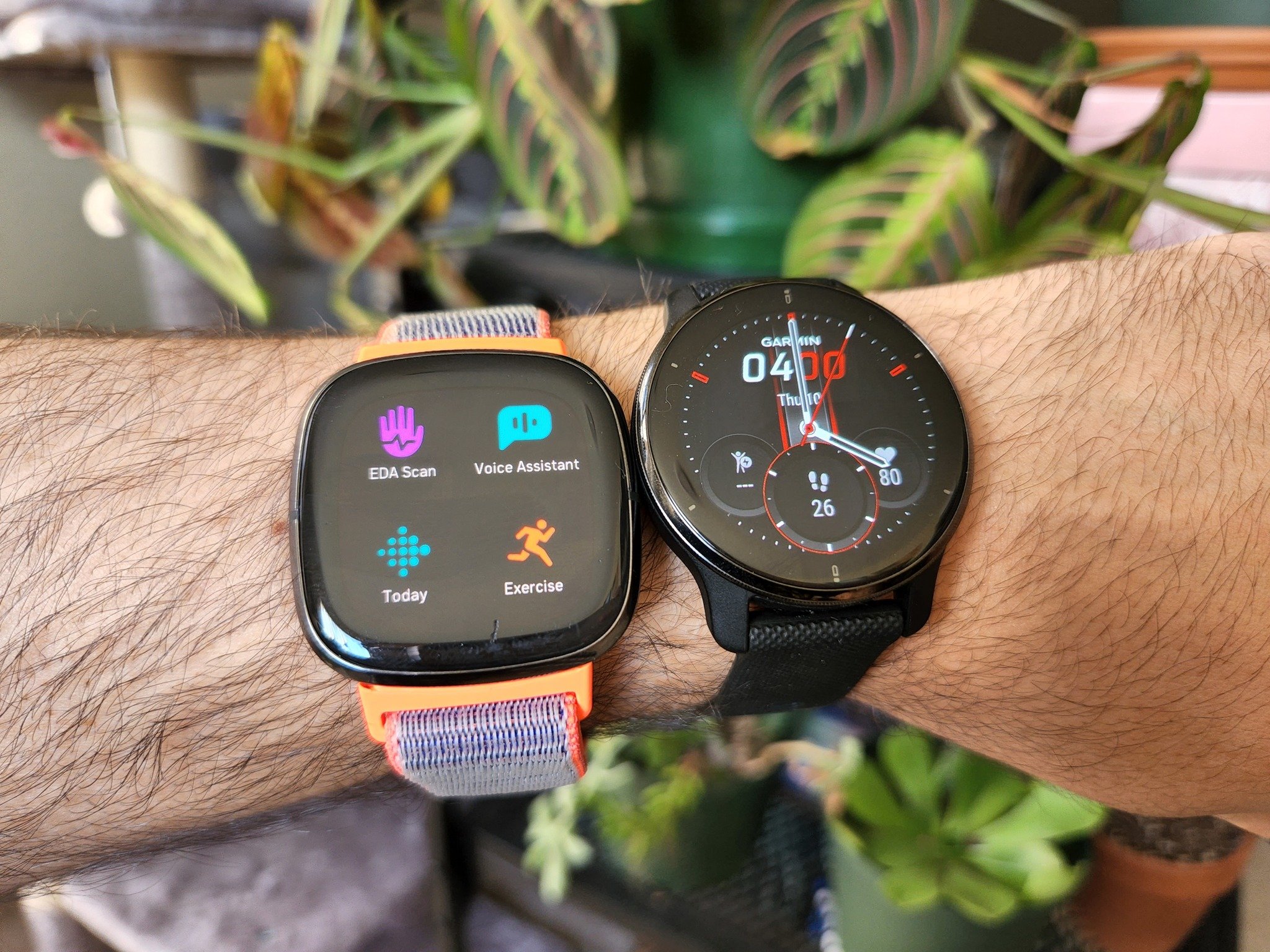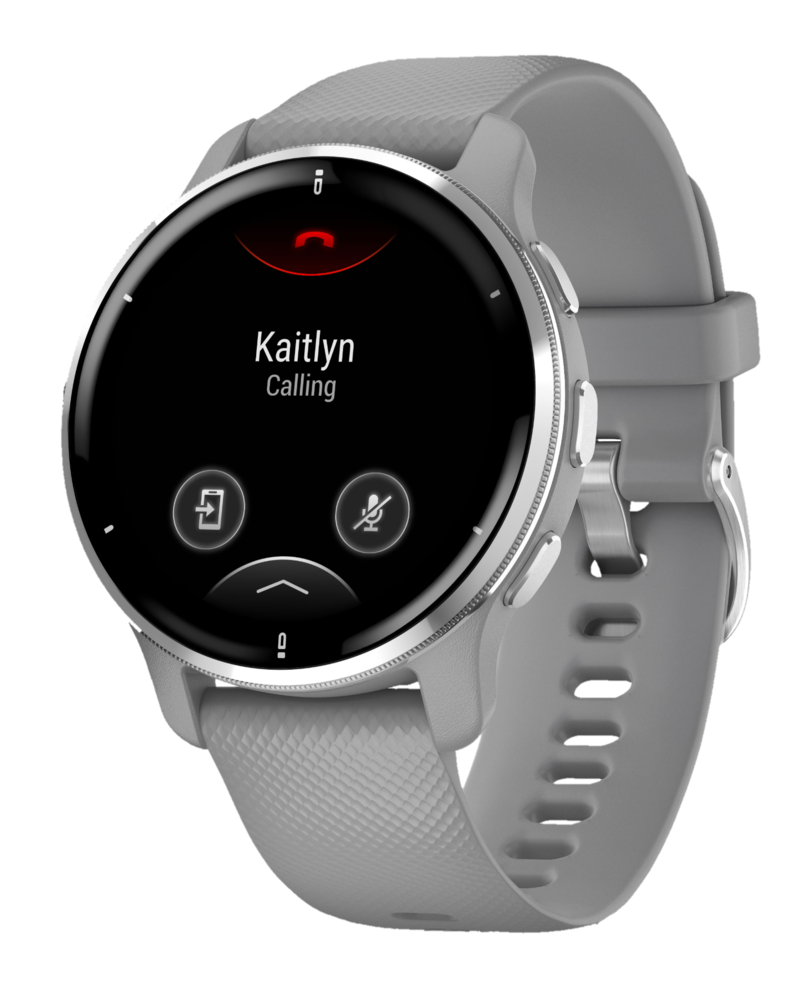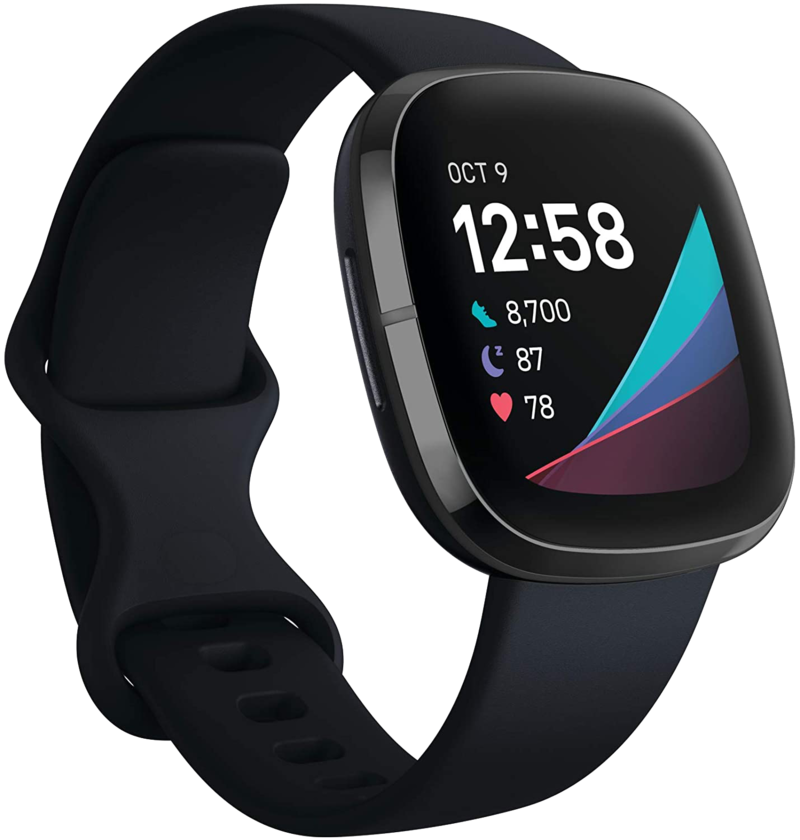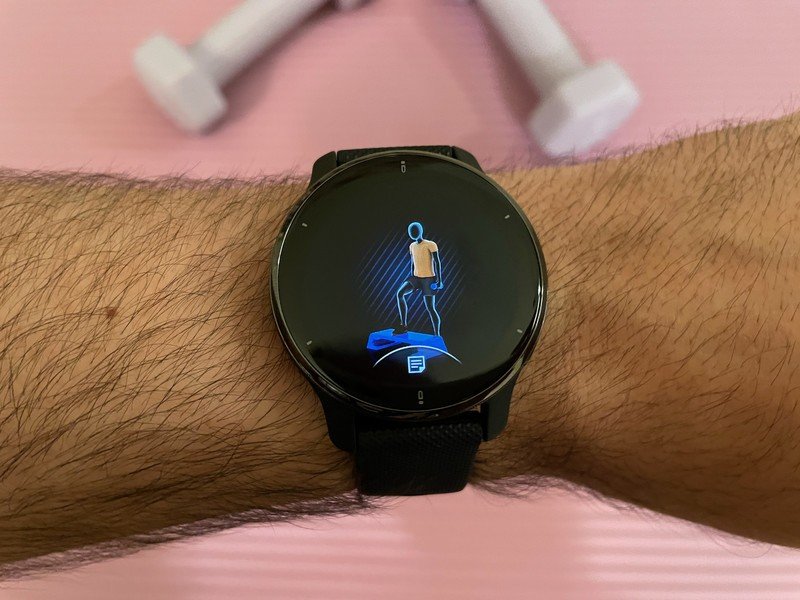Garmin Venu 2 Plus vs. Fitbit Sense

Get the latest news from Android Central, your trusted companion in the world of Android
You are now subscribed
Your newsletter sign-up was successful
Garmin Venu 2 Plus

The Garmin Venu 2 Plus offers heart rate and blood oxygen monitoring, sleep and stress tracking, fitness age and Body Battery scores, a daily Health Snapshot, and other health tools. For fitness, you'll find over 25 sports modes and tons of useful metrics offered for free, plus customizable workouts and free training plans. You'll just have to pay a premium to get it.
Garmin Venu 2 Plus
Easy-to-use workout workhorse
Fitbit Sense

In addition to the health tools offered by Fitbit, the Fitbit Sense tracks atrial fibrillation, stress patterns via the EDA, and skin temperature averages and variations over time. Battery life is shorter than with the Venu 2 Plus but still respectable, although it relies more on touchscreen navigation than buttons.
Fitbit Sense
Stylish and thorough
The Garmin Venu 2 Plus takes everything excellent about Garmin watches and adds a bright, colorful AMOLED display, making it an excellent choice for those who can afford it. As for the Fitbit Sense, it originally launched with performance issues and missing features, but over a year of updates has rectified many of the problems, and it's now also frequently found for $100 off its original list price. Is Fitbit's crown jewel worth buying over Garmin's? We'll help you decide.
Garmin Venu 2 Plus vs. Fitbit Sense Hitting all the core essentials
Both the Garmin Venu 2 Plus and Fitbit Sense sit at or near the top of their respective company lineups, so you won't see many missing features with either. You get built-in GPS, accurate heart rate and blood oxygen monitoring, water resistance, NFC payments, music storage, call answering, and voice assistant support on both. The Garmin Venu 2 Plus supports Bixby and Siri while Fitbit offers Alexa. Owners of Apple phones, in particular, may lean towards the Garmin for this tool, even if the Fitbit Sense works with iPhones.
You'll also appreciate the high-quality displays on both watches. While the Venu 2 Plus packs in more pixels, both watches have clear text, great color quality, and a display that's readable in sunny conditions.
And, of course, when it comes to the best fitness apps, Fitbit is considered among the very best, while Garmin Connect offers you detailed metrics that few apps can match.
| Header Cell - Column 0 | Fitbit Sense | Garmin Venu 2 Plus |
|---|---|---|
| Size | 40 x 40 x 12mm | 43.6 x 43.6 x 12.6 mm |
| Weight | 45.9g | 51g |
| Display | 1.58-inch AMOLED (336x336) | 1.3-inch AMOLED (416x416) |
| Material | Aluminum case with steel bezel | Fiber-reinforced polymer (plastic) with steel bezel |
| UI navigation | Touchscreen, one faux button | Touchscreen, three side buttons |
| Mic and speaker | ✔️ | ✔️ |
| Sensors | HRM, accelerometer, altimeter, gyroscope, SpO2, ECG, EDA, skin temperature, ambient light sensor | HRM, accelerometer, altimeter, compass, gyroscope, Pulse Ox, thermometer, ambient light sensor |
| Connectivity | Bluetooth, Wi-Fi, NFC, GPS, GLONASS | Bluetooth, ANT+, Wi-Fi, NFC, GPS, GLONASS, GALILEO |
| Music storage | About 300 songs (Pandora or Deezer) | Up to 650 songs (Spotify, Deezer, Amazon Music) |
| Battery life | 5-6 days (12 hours w/ GPS) | 9 days (10 w/ battery saver), 8 hours GPS mode w/ music, 24 hours GPS mode w/out music |
| Voice assistants | Google Assistant, Alexa | Bixby, Google Assistant, Siri |
| Durability | 5ATM Gorilla Glass 3 | 5ATM Gorilla Glass 3 |
| Colors | Graphite / Carbon, Soft Gold / Lunar White | Slate / Silver / Light Gold |
| Band size | 20mm | 20mm |
While both devices support music storage, Fitbit offers much more limited storage and only supports less popular music streaming services, whereas Garmin's Spotify and Amazon Music compatibility and extra space make it more useful to general users.
Get the latest news from Android Central, your trusted companion in the world of Android
Otherwise, they're two fitness smartwatches at the top of their game, offering just what you need to improve your fitness.
Garmin Venu 2 Plus vs. Fitbit Sense The Venu 2 Plus wins for battery, usability, and monthly costs

Most Garmin watches rely solely on button controls, giving you several to navigate through menus. You might see that as a downside, but buttons are much easier and more reliable while working out because it's easier to press buttons while on the move, whereas swiping at sweat-covered touchscreens is unreliable at best and unresponsive at worst.
Whatever your opinion, the Venu 2 Plus splits the difference, mostly relying on buttons but allowing you to swipe through your workout info or tap menu options. It has three buttons with six total functions, one each for tapping or long-pressing a button. The top button starts/stops a workout or opens the customizable controls menu with all of the main watch functions. The middle button offers two shortcuts for your favorite features like Garmin Pay, your assistant, or music controls. And the bottom one takes you back to the previous menu or opens settings.
Plus, the superior AMOLED display enables cool new features like animated exercises (pictured above) to show you exactly how to complete unfamiliar moves in Garmin's (or your) custom workouts.

Compared to Garmin, the Fitbit Sense has one faux button that you squeeze to press; it activates the screen, takes you back to the previous menu, or summons some quick options with two presses. We found pressing this button inconsistent at times, which proves frustrating when you consider that you can't tap to activate the display. Otherwise, the Sense touchscreen menus aren't particularly complicated to navigate — swipe down for notifications, right for quick settings, up for widgets, left for workouts and health scans — except when your fingers get sweaty.
Whichever watch you buy, you'll get far superior battery life to any typical Android smartwatch that lasts two days at most. The Fitbit Sense is rated to last 6 days or across 12 hours of GPS tracking, while the Venu 2 Plus lasts 9 days or up to 24 hours with GPS tracking. Garmin gives you a significant battery jump, but it's fair to say the Sense will last across at least a few workouts or one all-day bike ride before you need a recharge. It's not a bad compromise when you consider the cost difference between the two watches.
The more significant upside to any Garmin watch is that the expensive cost is all upfront. Garmin doesn't charge a monthly fee to access its advanced metrics, workouts, and health tracking. You simply get them for the duration of your time with the watch. For comparison, the Fitbit Sense comes with six months of free Fitbit Premium, after which you'll pay $10 per month. If you plan to use these watches for just two years, that's an extra $180 for Premium that nearly closes the gap in cost between the discounted Sense and full-priced Venu 2 Plus.
Garmin Venu 2 Plus vs. Fitbit Sense The Sense has better health tracking and style on its side

While the Garmin Venu 2 Plus has better resolution, its rounded design does tend to cut off text the moment it scrolls past the center of the screen, and leaves less room for information than on the square Sense. That watch is slightly larger but also slightly lighter, thanks to a sleek, curved aluminum case that makes the thick, plastic Venu 2 Plus look cheaper and more ungainly by comparison.
It makes sense to prioritize substance over style, but the Venu 2 Plus is more of a watch you'd wear for a workout and then take off. For wearing consistently across your day to get better health readings, the Sense will not only look better without the buttons but also track more health data. The Venu 2 Plus tracks all of the health data you need like sleep, stress, SpO2, and heart health, but doesn't have the same sensors as the Fitbit Sense to make the data more accurate.
With the ECG sensor, it'll assess your heart rhythm and ensure it sounds as it should. For anyone at the risk of heart attack, blood clots, stroke and other heart conditions, this could be a valuable tool. The electrodermal (EDA) sensor will check exactly how stressed you are throughout the day, going beyond what your heart rate data can track. And you can even see skin temperature graphs as you sleep, giving you a warning sign if you're staying hotter than your typical baseline.
Garmin Venu 2 Plus vs. Fitbit Sense Which should you buy?

When it comes to workouts, the Venu 2 Plus edges out the Sense for its button-based UI, 1,600 tracked exercises complete with animated instructions, free workouts and data sans a subscription, and GPS-backed battery life. While we reviewed it highly, it's not going to win any fashion or comfort awards if you keep wearing it once your fitness activity is over.
When it comes to health data, the Fitbit Sense is the obvious choice. It'll give you more information about your body, looks better on your wrist, and will feel more comfortable to wear overnight because there aren't buttons to dig into your wrist. And it'll cost you less initially, though you will have to add $10 to your monthly budget if you want access to everything Fitbit can offer.
Whichever you choose, you're not making the "wrong" decision, only targeting a different kind of use. We really enjoyed using both watches and would recommend either wholeheartedly.

Michael is Android Central's resident expert on wearables and fitness. Before joining Android Central, he freelanced for years at Techradar, Wareable, Windows Central, and Digital Trends. Channeling his love of running, he established himself as an expert on fitness watches, testing and reviewing models from Garmin, Fitbit, Samsung, Apple, COROS, Polar, Amazfit, Suunto, and more.
